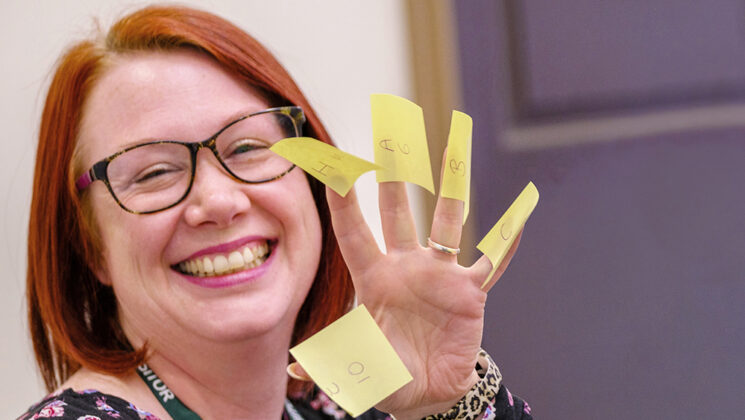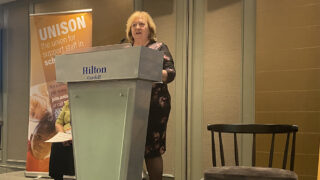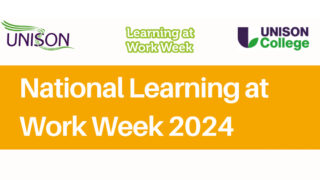What is UNISON College?
UNISON College helps members and activists develop their skills through a mix of in-person, online and self-study opportunities. UNISON’s regional learning teams, together with the national union learning team, organise opportunities as part of their learning and education programmes for both members and activists.
Where is the college?
UNISON College isn’t a building – the courses take place in UNISON’s regional offices, employers’ premises, learning centres and online. Courses can be delivered by union staff or external providers.
What can I learn as a member?
The college offers over 1,000 different courses, modules, events, workshops and webinars. Your union can help you with everything from improving your interview skills to get a promotion or a new job to getting grips with Excel and spreadsheets.
Is it all work-based?
No – we can help you deal with the challenges of everyday life too. From learning more about mindfulness to keeping on top of your finances, there really is something for everyone.
What about activists?
If you’ve volunteered to take on a role in your local branch – congratulations and welcome to being a UNISON activist! And don’t worry the college has a lot of courses to help you carry out your new role with confidence.
We can introduce you to the role of a steward or workplace rep. We can show you how to support members as a health and safety rep, a welfare officer, LGBT+ officer or green rep. There are also advanced courses on employment law, mental health first-aid and much more.
Can I support member learning and training?
Yes! Perhaps you want to encourage and support other colleagues with learning in the workplace by becoming a UNISON learning rep or get more involved in your branch as a lifelong learning coordinator or branch education coordinator.
Tell me more!
Whether you’re new to UNISON College or have already experienced some of the learning and training on offer, please visit
learning.unison.org.uk for more information.
Breaking down barriers
Dozens of UNISON members across Yorkshire and Humberside have been expanding their knowledge of the impact of menopause in the workplace through well-attended online workshops in the region.
Open to everyone, the sessions aim to help participants improve their understanding of menopause issues, from its impact on mental and physical health, work and relationships, to the best ways to minimise symptoms and stay healthy.
“It’s not death by PowerPoint – there’s always lots of questions and discussion,” says Claire Leader, the qualified nurse and midwife who delivers the workshops.
Helping people get together to discuss all aspects of menopause is vital to breaking down barriers, Claire says. “It does have an impact on people’s ability to do their jobs at certain points – they might get brain fog or anxiety and depression, so employers need to be aware of this – it’s huge.”
Claire says she always enjoys delivering the sessions because of the participants’ honesty and openness. “I get people experiencing perimenopause to post- menopause and everything in-between, and I really enjoy hearing them share their experiences with each other and giving each other support,” she says.
Carol Smith became a union learning rep (ULR) six years ago because of her deep belief in the power of learning.
As the library services and knowledge manager at Bedford Hospital, Carol was already committed to helping colleagues like pharmacy students progress in their careers.
“Learning is part and parcel of being a librarian – we just want accessible education for everybody,” she says. But as a ULR,
Carol is able to reach out to many more co-workers, some of whom might never have realised how learning could help them move on at work, as well.
“If staff were previously let down by the education system, learning at work gives them the chance to gain skills and confidence and even promotion,” she says. “I really enjoy seeing people thrive when they realise they can study and learn new things and change their lives.”
A case in point is the recent English for Speakers of Other Languages (ESOL) course for some of the domestic staff which has been a big success.
Carol also brings external tutors into the hospital to share their expertise, such as the local Buddhist teacher who delivers mindfulness sessions with staff once a month.
“The sessions are funded by UNISON but they’re open to everyone,” Carol explains. The trust is completely behind the branch’s drive to help ever-increasing numbers of staff engage with learning in the hospital.
Carol is keen to continue spreading the message: “I don’t think all of our members know just how much is available,” she says. “Learning may be something to help them relax or can help them in their career progression: education is the key to life – that’s the most amazing thing.”





